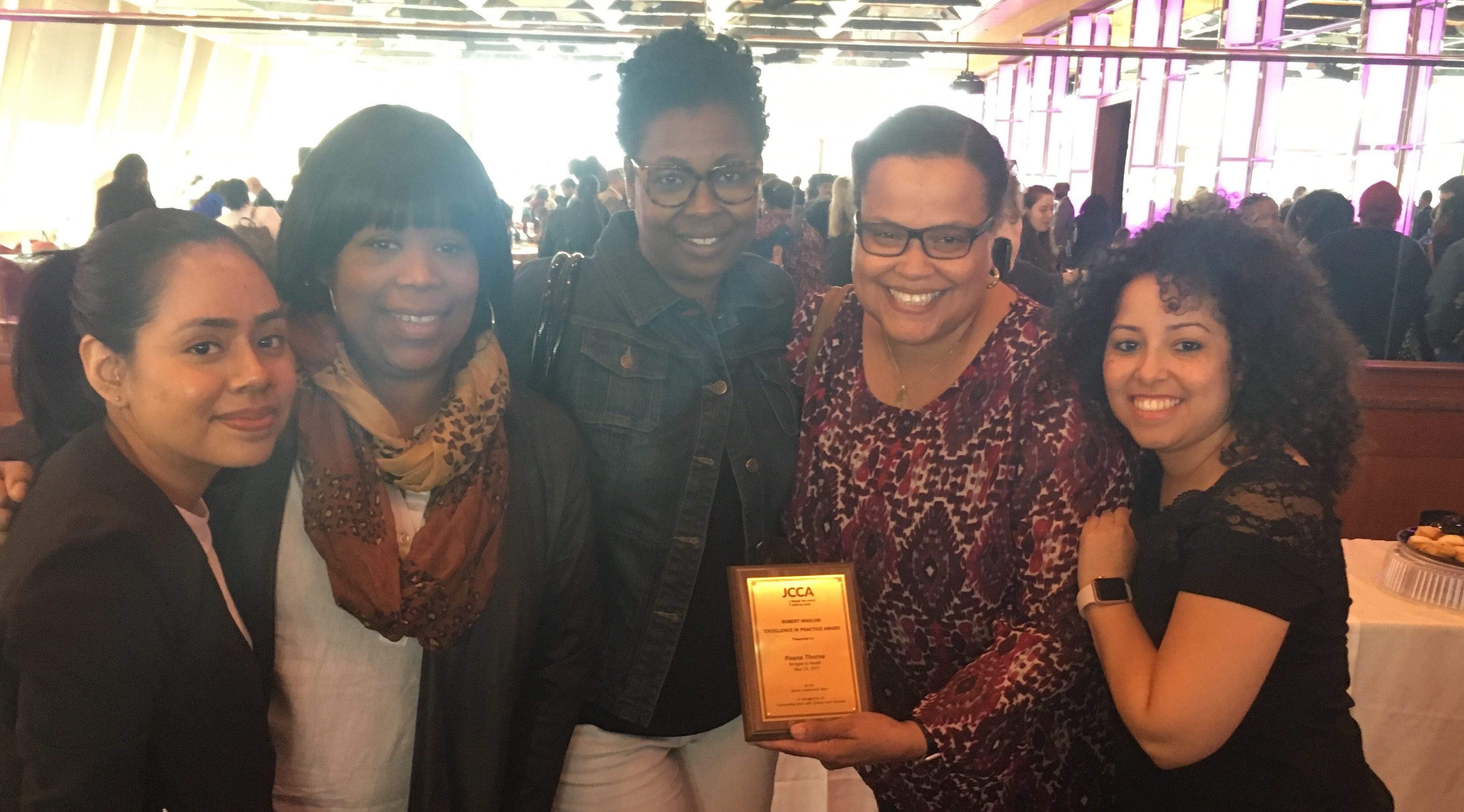 Reana Thorne, Health Care Integrator, Bridges to Health (B2H)
Reana Thorne, Health Care Integrator, Bridges to Health (B2H)
Reana Thorne is one of JCCA’s 2017 Maslow Excellence in Practice Award winners. She was described in her nomination as “an eager, courageous, empathetic worker, who is committed to B2H’s mission. Whether it is transporting a family to ensure that a psychiatric evaluation is completed, or purchasing toiletries for a youth who has been AWOL for an extended period of time, or using social media to locate, establish, and maintain communication with a resistant youth, Reana is an exemplary worker.” We are delighted to share some of Reana’s thoughts about her work, her clients, and her colleagues.
JCCA: What are some of the significant issues your clients face?
RT: Trauma is the primary struggle of our clients. We must always be mindful of that and bring it to the forefront of our work. The trauma can come from abuse or neglect, or any sort of separation from a parent. Our kids suffer from depression or aggressive behaviors. Sometimes they sabotage themselves by not being able to trust anyone; they don’t want to be vulnerable, so they tend to push people away and rely on the behaviors that are familiar to them. Our #1 job is trying to build their trust.
JCCA: How do you go about that?
RT: Again, to be constantly aware of the trauma they’ve suffered and to recognize and acknowledge that it may take time to build trust. Since many of our parents have been involved in the child welfare system, we often have to work around their stereotypes of what they think social workers are going to do—they’re a bit suspicious of outsiders. But I’ve found that once you’re able to establish trust with the family, you can work past most things.
JCCA: What do you find most satisfying about your work?
RT: Seeing a young person make real progress and move on from our program successfully. It’s great to see kids able to meet the goals they’ve set for themselves and become more self-sufficient. They see that they’re able to decrease their crises significantly by learning to deescalate their anger and frustration; it’s important that they recognize both their strengths and their deficits.
JCCA: What are some of the strengths of the program?
RT: The program works well because our staff works hard to resolve specific, individual behaviors and problems. The quality of our staff is terrific—they’re totally dedicated. Everyone supports one another and wants to see these kids get well. They form real relationships with our clients and make a special effort—we’re all rooting for the family. The work can sometimes be tough, but we’re all here for each other.
JCCA: Is there a particular young person you’ve worked with whose life has turned around?
RT: I’ve been working with a 10-year-old girl who had been in foster care since she was 8 days old. She was removed from home because her mother had mental health issues. She came to B2H in 2012 when she was 5—she had tantrums all the time and would pull her hair out. She was aggressive and had great difficulties with adults and authority figures. At B2H, we gave her support and dedicated time, and began to see a lot of improvement in her self-esteem and confidence. We worked to help her deal with intense crisis situations—she became able to recognize the triggers to her anger and learned how to de-escalate those reactions with strategies like taking deep breaths and counting backwards; she also learned that it was important to find someone to talk with before the situation became explosive. In 2013, she was finally adopted by a wonderful close-knit family—she’s one of their four adopted siblings—and she really feels a part of that family now. She still has some difficulties at school, but she’s come a long way.
JCCA: How did it feel to win the Maslow Award?
RT: Humbling.
